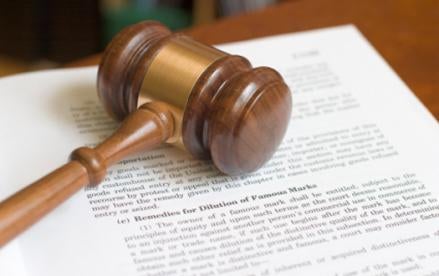On June 10, 2019, in Return Mail, Inc. v. United States Postal Service et al., the U.S. Supreme Court ruled that federal agencies cannot challenge patents through post-issuance review proceedings established under the Leahy-Smith America Invents Act (AIA). With this holding, the Court overturned the lower decisions of the U.S. Patent Trial and Appeal Board (PTAB) and the U.S. Court of Appeals for the Federal Circuit, which previously invalidated Return Mail’s patent on grounds that it was directed to an abstract idea of relaying mail address data.
A patent’s validity can be evaluated either in federal court as a defense to an infringement action, in an ex parte reexamination by the U.S. Patent and Trademark Office (USPTO), or in one of the AIA’s three post-grant adversarial proceedings. The AIA, enacted in 2011, established that a “person” may challenge the validity of an issued patent by petitioning for: 1) inter partes review (IPR); 2) post-grant review (PGR); or 3) covered-business-method (CBM) review. These proceedings are overseen by the PTAB, which either confirms the patent claims or cancels some or all of the claims.
The central question in Return Mail was whether the federal government is a “person” under the AIA, entitling it to petition for CBM review.
Return Mail is the owner of U.S. Patent Number 6,826,548, which claims a method for processing undeliverable mail. After the U.S. Postal Service introduced an enhanced address-change service to process undeliverable mail, Return Mail sued it in the U.S. Court of Federal Claims. While that suit was pending, the Postal Service sought CBM review. The PTAB concluded that Return Mail’s patent claims were ineligible for patent protection and thus canceled them. The Federal Circuit affirmed the PTAB’s decision, holding that the federal government is a “person” eligible to seek CBM review.
The Supreme Court reversed. Writing for the majority, Justice Sonia Sotomayor explained that the government is not a “person” under the AIA. Noting that the statute failed to define the term “person,” the Court applied a “longstanding interpretive presumption that ‘person’ does not include the sovereign.” In view of this presumption, the Court required the Postal Service to show, by either the AIA’s text or context, that Congress intended the term “person” to include government agencies. The Postal Service was unconvincing in this regard, the majority said.
First, while the term “person” appears in the statute at least 18 times, the Court pointed out that there is no clear trend indicating whether the term includes or excludes the government. Second, the Court explained that the ability of the federal government to obtain patents, and even possibly petition for ex parte reexamination, does not mean that Congress intended the government to be able to participate in the post-grant proceedings established by the AIA. Instead, the Court considered these AIA reviews to be fundamentally different by virtue of their adversarial characteristics.
In light of these characteristics, the Court noted that permitting the federal government to institute post-issuance review would lead to the “awkward” result in which one federal agency (here the Postal Service) might end up participating in an adversarial proceeding overseen by another federal agency (here the Patent Office).
The Court was unmoved by the Postal Service’s argument that it should be accorded the same rights as any other alleged infringer, explaining that federal agencies typically face lower and more calculable risks than nongovernmental actors, and thus it is reasonable to treat them differently. Further, the Court explained that it was not unusual for the AIA to provide nongovernmental actors with a more expedient route for addressing infringement suits than the federal government. And it pointed out that the Postal Service may still assert a defense of patent invalidity, like any other accused infringer. The Court’s holding thus only forecloses the government from availing itself of the offensive patent challenge reviews provided under the AIA.
In dissent, three Justices, led by Justice Stephen Breyer, wrote that Congress had plainly intended the government to be permitted to challenge patents under the AIA. Unlike the majority, the dissenting Justices were persuaded by the Postal Service’s arguments that the government can obtain patents, sue others for infringement, and be forced to defend its patents against AIA challenges by others. The dissent questioned the majority’s assertion that it would be “awkward” for a federal agency to oversee an AIA review involving another agency of the government, noting that this routinely happens whenever a third party challenges a patent owned by a federal agency. As a result, the dissent could not identify a persuasive reason why Congress would have declined to give federal agencies the power to invoke those same administrative procedures.




 i
i

